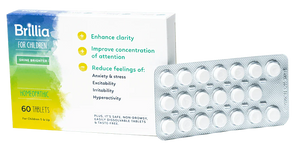For most people, daily routines feel like an impossible task. Despite the thousands of articles that stress how important they are, extra responsibilities can feel like a nuisance on busy days. Between work demands, tending to the needs of children and managing an entire household, it makes sense that an intentional daily routine is the first thing to go.
We’re here to reassure you that it doesn’t have to be that difficult. You can implement a daily routine that reduces your stress without feeling like it’s adding extra items on your to-do list.
Reduce Stress with A Morning Routine
This one may sound counter-intuitive, but we’re talking about it first because it is the most effective way to reduce the stress of your day-to-day life. Your morning sets the tone for the rest of your day. It determines whether you’ll be frantic and unprepared, or confident and organized.
A morning routine immediately adds structure and purpose to every day, which is particularly helpful if you or your children suffer from attention issues. Waking up with a routine and a set of tasks keeps them focused and prevents procrastination or defaulting to bad habits.
A good way to start your morning routine is by waking up exactly when your alarm goes off and not hitting snooze. Not allowing yourself to fall back to sleep helps prevent that foggy feeling that can follow you throughout the day. Teaching your child this same trick can be extremely powerful. Your body relies on a cycle to know when it needs energy and when it should feel sleepy. With consistency in your sleep schedule, they will feel more energized and more prepared for the day ahead. Tip: Place your alarm where you can’t reach it while you’re in bed.
Additionally, making their bed gives your child a sense of accomplishment right away. It adds responsibility to their morning so that they don’t wake up and immediately turn on a screen. Those hours without immediate stimulation from screens and other toys helps balance your child’s energy and focus for the day. A made bed also adds order to your home, which helps it feel less chaotic and more calm.
Finally, before you leave your house, setting goals and intentions for the family for the day can serve as reminders throughout the day. By focusing on daily goals, you aren’t paralyzed into inaction by stress. We recommend making a list, so that you can easily move from task to task when you have a specific plan for the day. You’re also less likely to put off the small items on your to-do list that add up to big stresses by the end of the week.
There are plenty of other activities you can add to your morning routine, but the most important thing is that you pick the ones that are sustainable for you and your family.
Add Play Into Your Family’s Daily Routine
Yes, we are suggesting you schedule time to have fun into each one of your days! At least until it becomes a habit for you and your family. The importance of play in daily life cannot be overstated. Beyond simply enjoying your day, play bonds people together. It helps us cope with anxiety and it promotes the development of cognitive, social and behavioral skills in children. Play is very serious business.
The way that your family plays doesn’t need to be overly structured, just make it a point to play together every day as a way to bond and to reduce stress. Whether you enjoy board games inside, creating pretend worlds with your imagination or playing sports outside, play will add invaluable benefits to the quality of your day-to-day life.
We encourage you and your family to find methods of play that don’t involve screens. Play is different than vegging out in front of the television watching a funny show. It also shouldn’t be video games played alone. Play, as a way to bond and reduce stress, needs to be active and engaged. Play can be especially helpful for families with children who suffer from attention issues. It offers them an opportunity to release some of their extra energy and have fun while doing it.
Practice Mindfulness Together Every Day
By now, you might have heard about the transformative effects meditation can have on reducing stress. No one argues against meditation at this point. The problem arises when people get frustrated during meditation because they don’t think they’re “good” at it. The truth is, it’s almost impossible to sit silently without thinking a single thought. During times of high stress, it’s especially difficult to get your mind to stop racing. Unfortunately, that’s exactly when you need these intentional moments the most.
With mindfulness, you submit that you won’t be able to stop your mind from racing, but you can train yourself to control your thoughts. It’s a way to center yourself, promote focus and give yourself a five-minute break in which you won’t stress about daily obligations. In that way, mindfulness is “easier” than strict meditation, especially for young children or those who struggle with attention.
Mindfulness practices are helpful as a bookend to your intentional morning routine. You can first talk as a family about the goals you reached that day and which ones you didn’t. Then you can spend 5 quiet minutes together practicing mindful meditation. Just like that, you’ll start to feel the stress of the day melt away, helping provide a great night’s rest as well!
It may sound like incorporating these techniques into your day-to-day routine will only add to your plate, but they are so much more than tasks to complete. Each of these techniques, with time and consistency, will make it easier to manage stress and be more productive each day. If you notice your family is feeling constant stress lately, try adding these practices in slowly until they are second nature. You won’t regret it.







